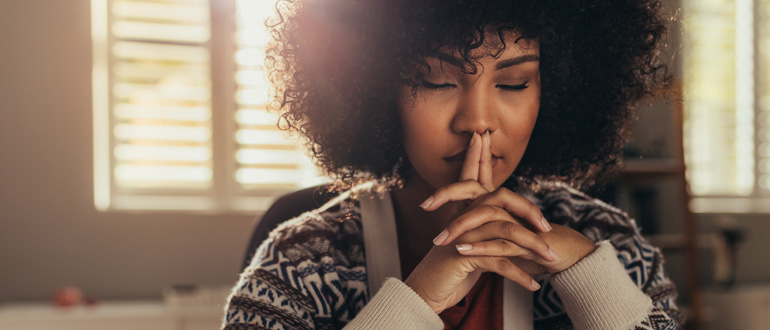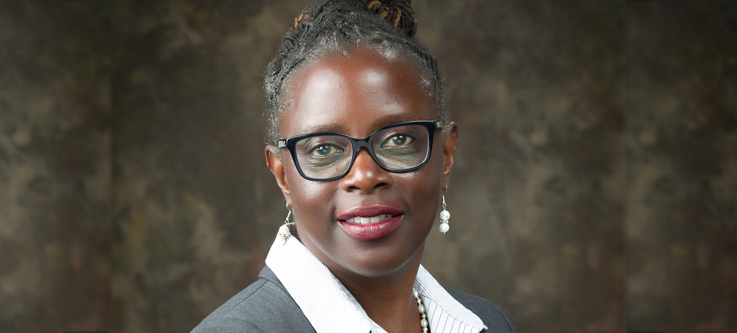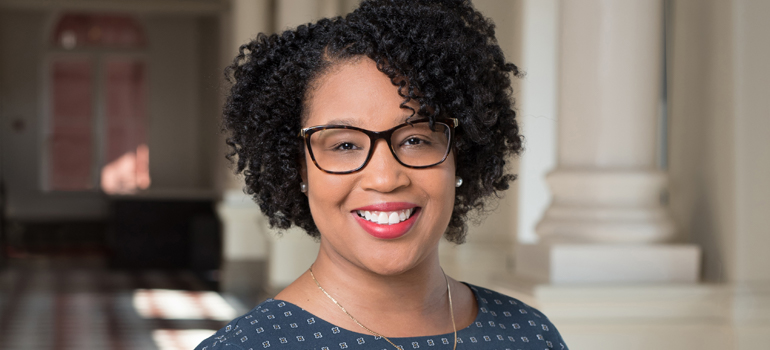Self-care and racial trauma: A tool for healing

Racial trauma can be caused in so many ways. Racism can be overt or covert. It might take the form of an explosive event or a small comment. People of color also constantly experience microaggressions—tiny hostile communications.
Racism is traumatic whether it’s baked into the system or perpetrated by an individual. It’s traumatic when it’s transmitted by older generations or experienced first-hand.
“The easiest form of racism to recognize is overt, like a racial slur or a hate crime,” says Tiffany George, Community Health Worker (CHW) for All-In Cincinnati. George received her CHW certification at Health Care Access Now. Her work at All-In Cincinnati concentrates on Black pregnant mothers in underserved ZIP codes, including Price Hill, Avondale, and downtown Cincinnati.
George says that microaggressions and covert racism can be complicated because unconscious bias is often the cause. “It’s hard to recognize the intention behind it—but regardless of intent, it still causes trauma.”
She says that she feels grateful to work at an organization (Greater Cincinnati Foundation) that requires Racial Equity Matters training.
Healing isn’t linear
By being transparent with her own story, George hopes to give others insight into the process. “It might give them an idea of how to start their healing journey,” she says.
“You go through high and low points throughout your journey toward healing [from racial trauma],” says George. She has found “the best way to empower myself is to empower others.”
George’s main outlet for healing has been therapy. “It’s helpful to have an objective person sit and listen to what upsets you and give you an unbiased opinion or advice on how to start the healing.” She says that she always recommends that people go to therapy, “even if you don’t think anything is off. Treat it like a check-up [at your primary doctor]. It doesn’t hurt to talk to someone.”
For those who cannot afford or access therapy, she recommends journaling, another important component in her own healing process. “It sounds clichéd but being able to write down your feelings helps you understand what you’re going through and get through it,” says George.
When she needs a way to distract herself from intense feelings, George turns to baking. “Sometimes the best way to deal [with racial trauma] is to take your mind off of it.”
This kind of self-care has helped her begin the journey toward healing. She recommends the Active Minds website as a resource to those who are just getting started on their self-care journey. “It helps you find a point where you can start.”
Find a balance
George says that having a support system helps—but she stresses that no one should depend too much on external validation. “Somebody might not be available to help,” she says. “You need to focus on yourself and get your validation from within.”
However, “engaging with others who have experienced racial trauma—like a support group—helps you understand yourself better,” she says. “It’s all about finding a balance.”
Practicing self-care can have a “huge impact” on healing from racial trauma. As George says, “[Racial trauma] can bring out strong emotions, and self-care helps to regulate those feelings.”






